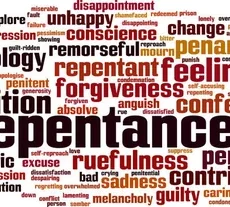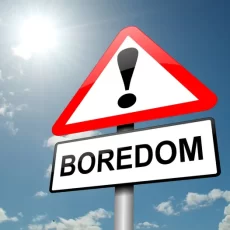Indeed, good memory has a big role to play in one’s life. As a student, our parents and teachers always insisted that we should memorize everything properly whatever we have learned. We did not understand its importance then, but it helped develop our memory. People with sharp memory are blessed and don’t need any alarm to remind them of anything. Moreover, they are considered intelligent, receptive, communicative, and socially acceptable. It’s a ladder to success – personally, and professionally.
So, what is memory?
Memory is an active, subjective, intelligent reflection process of our previous experiences.

Memory is one of the most fundamental aspects of life, reflecting the past as the past, offering the possibility of reusing all past and present experiences, as well as helping to ensure continuity between what was and what was going to be.
Memory is related to learning but should not be confused with learning. There are 3 main processes involved in human memory:
- Encoding
Transforming information into a form that can be stored in memory. - Storing
Maintaining the encoded information in memory. - Retrieving
Re-accessing information from the past which has been encoded and stored.
In the recent past, I came across many instances where people complained of forgetting very trivial things, which they undertake in day-to-day life. So much so that they forget if they had brushed their teeth in the morning or have taken breakfast, who they need to visit, forget car keys, door keys, masks, sanitisers, mobiles, whom to call, etc., etc. the list is endless. I am blessed with a sharp memory and never faced any such issue, so much so that I never forget anything. When I came to know that people forgot even very important meetings etc. I thought it was fashionable to say, “Oh I completely forgot” whereas I remembered every meeting and made it on time, every time. To such people, I looked old-fashioned!! Anyway!!

But in the last two years, I have started forgetting like my other friends like car keys, masks, sanitisers, and mobile. Once, I forgot my mobile at a friend’s place, which was quite unusual for me and it sounded an alarm. I consulted a friend, who is an expert in brain-related matters. She told me that this is quite normal, people do forget particularly when they are surrounded by too many thoughts and the brain is on overdrive…currently, this is an after-effect of the pandemic (Covid -19) which leaves us with such situations. Quite right!
Then my next question was – How do I work on having my good memory back?
The quick tricks:
- Get organized
- Write it down
- Consult your calendar
- Play word games
- Repeat, repeat, repeat
- Work at it
- Get Social

Besides, you can follow some simple ways to sharpen your memory:
Incorporate physical activity into your daily routine
Physical activity increases blood flow to your whole body, including your brain. This might help keep your memory sharp. If you don’t have time for a full workout, squeeze in a few 10-minute walks throughout the day.
Stay mentally active
Just as physical activity helps keep your body in shape, mentally stimulating activities help keep your brain in shape — and might keep memory loss at bay. Do crossword puzzles. Play bridge.
Socialize regularly
Social interaction helps ward off depression and stress, both of which can contribute to memory loss. Look for opportunities to get together with loved ones, friends, and others.
Get organized
You’re more likely to forget things if your home is cluttered and your notes are in disarray. Jot down tasks, appointments, and other events in a special notebook, calendar, or electronic planner.
Sleep well
Sleep plays an important role in helping you consolidate your memories, so you can recall them down the road. Make getting enough sleep a priority. Most adults need seven to nine hours of sleep a day.
Eat a healthy diet
A healthy diet might be as good for your brain as it is for your heart. Eat fruits, vegetables, and whole grains. Choose low-fat protein sources, such as fish, beans, and skinless poultry.
Manage chronic conditions
Follow your doctor’s treatment recommendations for medical conditions, such as depression, high blood pressure, high cholesterol, diabetes, obesity, and hearing loss.
When to seek help for memory loss
If you’re worried about memory loss — especially if memory loss affects your ability to complete your usual daily activities or if you notice your memory getting worse — talk to your doctor.
Besides, socio-physical factors, your lifestyle has an important role in strengthening or weakening your memory. If you are physically agile and mentally alert and love to recall and repeat things in your head, chances are that you are blessed with good memory. If you are exercising regularly and eating balanced food, chances are even better.

This way we see that lifestyle affects memory. Say, for example, your diet, needs to be in sync with your activities. If your cholesterol, blood pressure, and blood sugar are too high, the blood vessels in and around your brain can get clogged or damaged. A Harvard study showed that people who eat more saturated fat (found in meat and dairy products) do worse on memory tests than those who eat less. If you’re trying to make better food choices, consider the Mediterranean diet. This way of eating — which features omega-3-rich fish, heart-healthy olive oil, and plenty of fresh produce – has been linked with protecting thinking and memory.
Guess what else is just as good for your memory as for the rest of your body?
Regular exercise. It promotes blood flow to the brain. You should be getting 30 minutes each day. And you need regular sleep, which helps your brain file memories so you can access them later on.
If you smoke, stop. It damages blood vessels. If you’re a heavy drinker, lighten your intake. Research shows heavy drinking will mess with your memory.
Memory loss is also an ailment, which needs to be addressed properly. This is very important for increasing your happiness quotient, so check it and be HappyHo.





